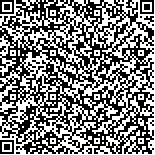| 摘要: |
| 化学互感作用或化感作用(allelopathy)在浮游植物的种群相互作用及动力学过程中起着重要的调节控制作用, 已经成为有害藻华生态学研究中的重要领域。但在被研究的种类和化感作用的规律等方面还存在众多空白。本研究选取分离自中国和美国近海的重要藻华甲藻多环旋沟藻(Cochlodinium polykrikoides)、米氏凯伦藻(Karenia mikimotoi)、剧毒卡尔藻(Karlodinium veneficum)、短沟别什莱藻(Biecheleria brevisulcate), 在相同的试验条件下(72 h 共培养)观察其与另一种常见的藻华甲藻红色赤潮藻(Akashiwo sanguinea)的化感作用。实验结果显示化感效应随种类和特别是起始细胞密度比率而分别表现为抑制或促进共存种的生长。与起始细胞密度为500个/mL 的红色赤潮藻共培养时, 多环旋沟藻起始密度为250个/mL 时促进红色赤潮藻生长, 米氏凯伦藻苏澳株和短沟别什莱藻在细胞密度低于1 000个/mL 时促进红色赤潮藻生长, 同时起始密度为5 000~50 000个/mL 的剧毒卡尔藻被红色赤潮藻促进生长。但是, 米氏凯伦藻深圳湾株在细胞密度500个/mL 以上时均抑制红色赤潮藻生长, 多环旋沟藻在起始密度大于250个/mL 时开始抑制红色赤潮藻生长, 且抑制效应在起始密度2 500个/mL 时接近100%。米氏凯伦藻的化感作用在不同株系间表现出显著差异。结果说明有害藻华甲藻之间的化感作用表现出复杂的形式, 随着作用的种类和互相之间的密度比率变化而有互相促进、抑制或一方抑制(或促进)另一方等作用, 这对进一步认识藻华甲藻的种群动力学具有重要意义。 |
| 关键词: 化感作用 红色赤潮藻(Akashiwo sanguinea) 多环旋沟藻(Cochlodinium polykrikoides) 剧毒卡尔藻(Karlodinium veneficum) 米氏凯伦藻(Karenia mikimotoi) 短沟别什莱藻(Biecheleria brevisulcate) |
| DOI:10.11759/hykx20161230001 |
| 分类号: |
| 基金项目:国家自然科学基金重点项目(61533011); 国家基金委-山东省联合基金项目(U1606404); 鳌山科技创新计划项目(2016ASKJ02);国家基金委-广东联合基金项目(U1301235) |
|
| Preliminary investigation on the allelopathic effects of four common harmful algal bloom (HAB)-forming dinoflagellates on Akashiwo sanguinea |
|
WANG Huan,HU Zhang-xi,TANG Ying-zhong
|
| Abstract: |
| Allelopathy plays an important regulatory role in phytoplankton population interactions and dynamics, and has become an important area in the ecology of harmful algal blooms (HABs). But there are still many unknowns, both in the number of tested species and the general patterns of inter-specific allelopathic interactions. This study investigated the allelopathic effects of four common HAB-forming dinoflagellates, Cochlodinium polykrikoides (from New York, USA), Karlodinium veneficum, Karenia mikimotoi, and Biecheleria brevisulcata (isolated from China), on another common HAB-forming dinoflagellate, Akashiwo sanguinea. The choice of A. sanguinea as a test model organism in this current study was due to its reported sensitivity to allelopathy. Under our experimental conditions (72 h co-culturing), it was observed that the allelopathic effects varied from positive (growth-stimulating) to negative (growth-inhibiting) depending on the species and in particular the initial cell density ratio. When co-cultured with A. sanguinea (initial cell density 500 cells/mL), C. polykrikoides promoted the growth of A. sanguinea at an initial cell density of 250 cells/mL while K. mikimotoi (strain Su’Ao) and B. brevisulcata promoted A. sanguinea at initial cell densities below 1 000 cells/mL. The growth of Karlodinium veneficum (with initial cell densities between 5 000 to 50 000 cells/mL) was promoted by A. sanguinea. In contrast, with the same initial cell density for A. sanguinea (500 cells/mL), the strain of K. mikimotoi from Shenzhen Bay inhibited the growth of A. sanguinea at the initial densities > 500 cells/mL, and C. polykrikoides inhibited the growth of A. sanguinea at initial cell densities >250 cells/mL in a dose-response manner that reached 100% inhibition when the initial density was above 2 500 cells/mL. It is noteworthy that the two strains of K. mikimotoi (Su’Ao and Shenzhen Bay) exhibited significantly different allelopathic potency. The results demonstrated that the allelopathic interactions among HAB-forming species change from positive to negative, depending on the species and the ratio of initial cell density. We believe that these results will contribute to further understanding of the mechanisms and dynamics of HABs. |
| Key words: Allelopathy Akashiwo sanguinea Cochlodinium polykrikoides Karlodinium veneficum Karenia mikimotoi Biecheleria brevisulcata |
